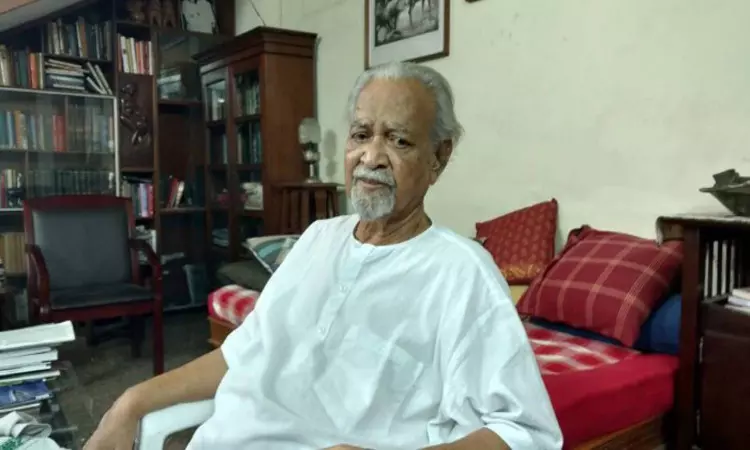Burgula Narsing Rao who led anti-Razakar movement passes away
By Newsmeter Network
Hyderabad: Burgula Narsing Rao, former CPI leader and student leader from Nizam college who participated in the anti-Razakar movement as the president of the All Hyderabad Students Union in 1948, has passed away. He was the nephew of B. Ramakrishna Rao, the first Chief Minister of Hyderabad state.
Burgula Narsing Rao was born in Burgula village on 14 March 1932 to a family of freedom fighters. His father B. Venkateshwar Rao and his father's elder brother B. Ramakrishna Rao along with their compatriots were all involved in the struggle for self-rule in Hyderabad state and in the nationalist struggle for Indian Independence. The nationalist Urdu Daily "Imroze" edited by Md. Shoebullah Khan and published from their house. Narsing Rao's childhood experiences shaped his ideas of nationalism and secularism.
As a teenager, he witnessed the killing of Shoebullah Khan by the Razakars and this incident influenced his thoughts on secularism and religion. In his youth, he turned towards Marxism and Communism and grew up to be a student leader. He was the first president of the All Hyderabad Students' Union and a member of the Hyderabad District Committee of the Communist Party of India (CPI). He was active in the Communist movement and the anti-Razakar movement for which he was arrested in 1949 and sent to Chanchalguda prison.
In 1952, he was at the forefront of the Mulki Movement where 13 people were killed in police firing. The incident created a crisis for his uncle Burgula Ramakrishna Rao's Cabinet.
In 1955, Narsing Rao was elected the first president of the All India Student Federation at its Lucknow Conference till January 1959. He broke caste barriers by marrying his life partner Dr. Mangutha in 1957. After a stint of higher education in the U.K in the 1960s, he returned to Hyderabad to teach political science and became actively involved in progressive causes.
By the 1980s, he was deeply involved in promoting greater people's participation in civic institutions and towards this goal, he involved himself in developmental activities in Burgula. He was successful in establishing the railway station in Burgula, a handloom yarn micro-spinning and weaving unit, and also donated land for the high school, primary health centre, and Anganwadis. As a result of his developmental activities, Burgula attracted a number of other NGOs to work there.
A quintessential Hyderabadi, his knowledge of Urdu language and literature, Hyderabad history and culture, and his ability to absorb the best of cultures makes him a true renaissance man. He leaves behind his wife Dr. Mangutha, daughter Malavika, and sons Ajay and Vijay.